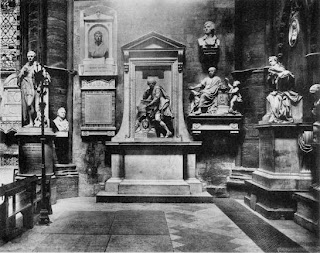Roman Catholic interpretation of being born again is on display
here, where being born of water and spirit is said to define being born again, a natural if mistaken view with a long pedigree:
In verse 5, Jesus clarifies what he meant by “born again,” saying a similar sentence again but substituting in the phrase “born of water and the Spirit.” While the term “born again” is vague enough to possibly mean simply a conversion experience, being “born of water and the Spirit” is obviously not, at least not exclusively – I’ve never seen anyone get wet from saying the sinner's prayer.
What Christian action involves water and the Holy Spirit? The answer: baptism. To be “born again” means to baptized. This is not only the current Catholic interpretation of this text (also held today by many Anglicans, Lutherans, and Orthodox), but also the interpretation given by the early Church Fathers – indeed all orthodox Christians prior to the 16th century Protestant Reformation. ...
Jesus is teaching something that evangelicals frequently deny, but that the Catholic Church has always maintained: that baptism is necessary for salvation.
----------------------------------------------------------------
This exegesis pays no attention, needless to say, to the narrative's rich symbolisms featuring an adult skulking about in the dead of night as opposed to a helpless child who would fittingly be asleep in his bed at such a time and be approachable, naturally, only in the full light of day. It knows nothing of the need to recover the natural openness, submissiveness and wariness of evil characteristic of a child, to which the mature adult like Nicodemus has normally long past said farewell. Nicodemus' adult skepticism, of course, is notably presaged in the person of Nathanael already in 1:46.
Nor does the interpretation take any note of the difference between only "seeing" the kingdom in v. 3 and actually "entering" into it in v. 5, which suggests that being born again is different from actually believing and is instead the necessary praeparatio for conversion, a view consistent with the Synoptic triple tradition about little children, "of such is the kingdom of heaven". To be born again is something an adult must do, not a child, a vivid circumlocution for entrusting oneself to the care of the Father.
Submitting to baptism in v. 5 is clearly the theological point intended by the Evangelist, to be sure, but as such it is evidence of the Urkatholicismus which is not yet apparent even in the long endings later fabricated to finish the damaged Mark, where baptism is described but as yet not required.
Just another sign of "John's" later time and place, a correction of a prior narrative which was thought to be inadequate, Luke the historian's efforts notwithstanding.










